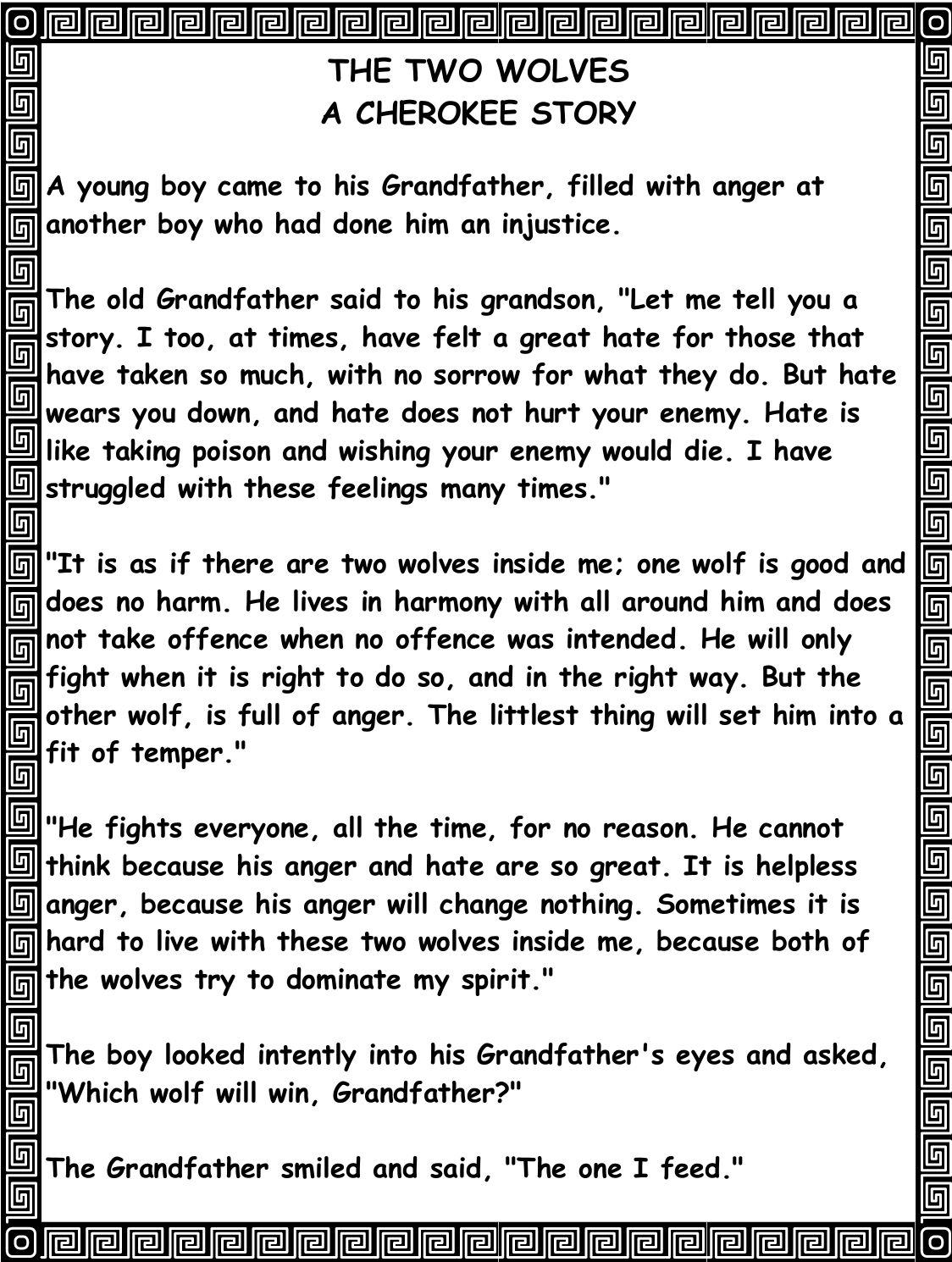This Is The Hidden Antidote To Dis-Ease
You may be familiar with this fable, and even if you are, it’s worth repeating.
I was supporting a retreat for first responders recently and once a day, during the retreat at mealtime, somebody initiates a gratitude practice. Everyone is expected to share three things they’re grateful for. One participant, with tremendous anxiety, started sharing his gratitude, only to be detoured back to anxiety by the negative mind. Noticing this, I asked him, “If you had to thank your anxiety for something, what would it be?”
I wanted this participant to think of anxiety as a teacher rather than a death sentence; as something external to himself rather than a part of his identity. I feel anxiety vs. I am anxious sits differently in the mind and the body, for example. The former externalizes anxiety, the latter internalizes. Anyway, anxiety is a fear-based emotion. We use it to keep ourselves safe and protect loved ones, but when the negative mind is too strong then that anxiety becomes added weight. It holds you back.
Well, gratitude short-circuits that fear. You can’t be angry—another fear-based emotion—and thankful in the same moment. It’s impossible. Love is a stronger emotion than fear. You must choose which wolf you want to feed.
The thing about anger is it’s easy to control, which is why it’s a default emotion for many people. It’s easier to be angry for men because it makes them feel tough, it helps them avoid uncomfortable emotions, like patience, because what happens when you practice patience? You’re brought back to the present moment. And what’s in the present moment? You. Impatience is another way to avoid the self and any feelings of disrespect or injustice associated with you having to wait for whatever it is you (i.e. the ego) want now.
Here's an example. I use a lot of traffic examples because, well, I live in the DC area, so traffic is quite a thing. When somebody cuts you off in traffic, anger is the first emotion to surface. Why? Because we feel wronged. We believe that driver did us an injustice and disrespected our “space” on the road.
Now, I’m not saying don’t get angry. Who wouldn’t get upset? I’m saying that after the initial emotion or thought comes in, you now have a choice to either perpetuate that emotion or replace it with something else. We do not have control over the first thought that enters our minds; we do have control over the second, third, fourth…
I shared in another article the idea of giving anxiety a purpose. The beauty of this approach is that instead of seeing people’s unwanted behaviors as an act done to you, you make a slight shift in perspective and view them as actions done for you.
What part of you gets to surface now and be heard?
What aspect of your Self gets the growth it never had as a child?
Here’s the power of shifting perspective. One study1 examined 131 women who were at-risk for clinical depression—35 of whom had been diagnosed with depression at some point in their lives. The researchers found that those who were more grateful and accepting of their depression led to better wellbeing and less depression and anxiety. In other words, they chose to feed their good wolf.
In yet another study2 on veterans, researchers found dispositional gratitude—the natural tendency to notice and appreciate the positive sides of things—was associated with fewer psychiatric illnesses and increased resilience, curiosity, life purpose, social connection, and optimism. Higher levels of gratitude also put these veterans at lower risks for PTSD, disorder, anxiety, social fears, nicotine addiction, and suicidal thoughts.
But, the secret is to be grateful! That’s the key—to feel the gratitude rather than let it become just another intellectual exercise.
Cultivating a gratitude practice takes awareness and courage: the self-awareness to know when you’re sliding into a negative emotion and the courage to accept it while asking yourself, “What is [it] trying to teach me?”
Yes, self-acceptance takes courage.
It also takes work. It takes patience. It takes resilience to withstand setbacks because success is never a straight line and it takes a willingness to accept oneself. You already know the people who don’t accept themselves—they’re the ones who immediately repay you with a compliment after receiving one instead of just saying, “thank you.” They can give love all day but have a very hard time receiving it. This stems from childhood wounding that I’ll cover in another article.
Anyway, I hope you liked today’s article. If you did, please share and subscribe!
References
1Tomczyk, J., Nezlek, J. B., & Krejtz, I. (2022). Gratitude can help women at-risk for depression accept their depressive symptoms, which leads to improved mental health. Frontiers in Psychology, 13. https://doi.org/10.3389/fpsyg.2022.878819
2McGuire, A. P., Fogle, B. M., Tsai, J., Southwick, S. M., & Pietrzak, R. H. (2021). Dispositional gratitude and mental health in the US Veteran population: Results from the National Health and Resilience Veterans Study. Journal of Psychiatric Research, 135, 279–288. https://doi.org/10.1016/j.jpsychires.2021.01.020






